December 2019 brought 12 reviews of 11 books to the Challenge, and what a diverse bunch they are this time! There were reviews of books that have been mentioned in the Round-Ups earlier, some new books published during 2019 and some old books stretching back decades.
Some favourites
Emily at A Keyboard and an Open Mind read Maxine Beneba Clarke’s The Hate Race, the eighteenth review that it has received since its publication in 2016. Denise Newton Writes read The Trauma Cleaner, which has received fourteen reviews over the last two years. Jennifer Cameron-Smith read Gabrielle Jackson’s Pain and Prejudice and Shelleyrae@Book’d Out read Catie Gilchrist’s history of the lives and deaths of 19th century Sydney residents in Murder, Misadventure & Miserable Ends. Kali Napier read Anna Funder’s Stasiland, bringing the total of reviews to six since 2012.
Something new
We received two reviews of Robyn Annear’s new book, Nothing New: A History of Second-Hand (2019). Marianne, (aka Cloggie Downunder) asks
Who has never been into a second-hand shop, or never op-shopped? Those who raise a hand are surely missing out! Robyn Annear takes us there. But not just in today’s world. Annear takes us back, way back, to show us that second-hand is no recent phenomenon….Annear’s extensive research (to which the sources and further reading list attest) is apparent on every page. With her many (always interesting and often funny) footnotes, this makes an utterly fascinating read (review here).
Janine at Resident Judge wrote that Annear
embarks on a digressive history of second-hand, told with her trade-mark giggle in the narrative voice. …Written in a quirky conversational tone, ‘Nothing New’ wears its scholarship lightly, but the references at the back reveal the research that has gone into the book. Where footnotes appear at the bottom of the page, they are jokes and comments, rather than references (review here).
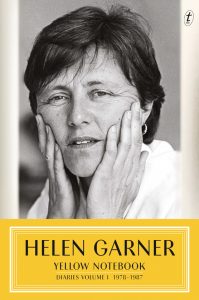 Helen Garner’s published diaries Yellow Notebook: Diaries Volume I, 1978-1987 (2019) do not fit neatly into the History Memoir and Biography category, but surely they belong here! Kim Forrester@Reading Matters acknowledged that Garner often courts controversy for what is seen as biassed reporting, but Kim “makes no bones about being a fan”. She writes:
Helen Garner’s published diaries Yellow Notebook: Diaries Volume I, 1978-1987 (2019) do not fit neatly into the History Memoir and Biography category, but surely they belong here! Kim Forrester@Reading Matters acknowledged that Garner often courts controversy for what is seen as biassed reporting, but Kim “makes no bones about being a fan”. She writes:
The entries are not what you might expect of a typical diary. There are no dates (apart from the year) and some entries are no more than a single sentence. But my, how each entry, each sentence sparkles and shines. She captures the minutiae of daily life in a remarkable way, using the tiniest of details to elevate seemingly ordinary occurrences into scenes of extraordinary power. Her writing is sublime and pithy. It’s confronting and raw and funny and makes you look at the world, domestic and familial, in a fresh, new way. The entire book is totally immersive and a joy to read (review here).
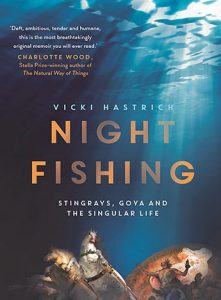 The blurb on Vicki Hastrich’s Night Fishing:Stingrays, Goya and the Singular Life (2019) describes it as “the most breathtakingly original memoir you will ever read”. Kate@Booksaremyfavouriteandbest writes:
The blurb on Vicki Hastrich’s Night Fishing:Stingrays, Goya and the Singular Life (2019) describes it as “the most breathtakingly original memoir you will ever read”. Kate@Booksaremyfavouriteandbest writes:
Essays covering a range of topics from stingrays and aquariums to the acquisition of a bathyscope and her grandfather’s welding business, are loosely linked to fishing and Hastrich’s trips to the family holiday house on an inlet near Woy Woy. Each essay is overlaid with Hastrich’s elegant observations about family, nature, and writing and the result is cohesive and deeply pleasing….Some people avoid memoirs because they are perceived as a platform for self-indulgence – this memoir does the opposite and Hastrich has delivered a book that tells her story (exquisitely) and yet is firmly outward looking (review here).
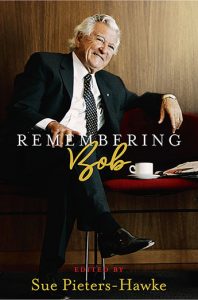 May 2019 saw the death of former Prime Minister Bob Hawke. His daughter, Sue Pieters-Hawke compiled Remembering Bob, a collection of stories by friends, colleagues, political foes and ordinary Australians. Theresa Smith notes in her review:
May 2019 saw the death of former Prime Minister Bob Hawke. His daughter, Sue Pieters-Hawke compiled Remembering Bob, a collection of stories by friends, colleagues, political foes and ordinary Australians. Theresa Smith notes in her review:
Remembering Bob is a book for those who want to do exactly that: remember Bob. This is not a biography that ‘tells all’, nor is it a comprehensive memoir. It’s a rather simple book that is made up of a collection of memories about Bob Hawke, told in their own words by a variety of people who either knew him, encountered his generosity, or have benefited from his legacy. I enjoyed it immensely, particularly the submissions from those who knew him in the later years (review here).
Something old
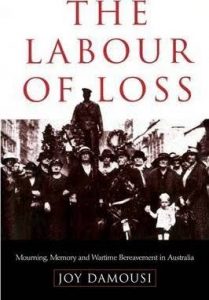 Janine Rizzetti at the Resident Judge of Port Phillip has been wallowing around in some old titles during December. Although published in 1999, Joy Damousi’s The Labour of Loss remains a foundational academic text in exploring the emotional burden on mothers, fathers, widows and injured soldiers themselves in the wake of war. Subtitled “Mourning, Memory and Wartime Bereavement in Australia” the book draws on letters and diaries to explore loss during World Wars I and II. Janine writes:
Janine Rizzetti at the Resident Judge of Port Phillip has been wallowing around in some old titles during December. Although published in 1999, Joy Damousi’s The Labour of Loss remains a foundational academic text in exploring the emotional burden on mothers, fathers, widows and injured soldiers themselves in the wake of war. Subtitled “Mourning, Memory and Wartime Bereavement in Australia” the book draws on letters and diaries to explore loss during World Wars I and II. Janine writes:
I find myself thinking of the title of Shakespeare’s play “Love’s Labour Lost” which to me has its echoes in this title. For, without actually spelling it out in her title, what comes through in Damousi’s examination of memory and grief, is “love” (review here)
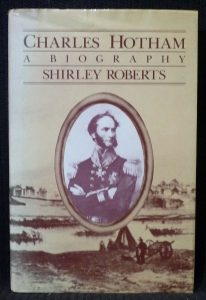 An even older, lesser known book is Shirley Robert’s Charles Hotham: A Biography (1985). Charles Hotham was the Governor of Victoria for only fifteen months, but a tumultuous fifteen months it was, coming at the height of the Gold Rush and during the Eureka Stockade. Janine notes in her review:
An even older, lesser known book is Shirley Robert’s Charles Hotham: A Biography (1985). Charles Hotham was the Governor of Victoria for only fifteen months, but a tumultuous fifteen months it was, coming at the height of the Gold Rush and during the Eureka Stockade. Janine notes in her review:
This short, pragmatic book fleshes out his career more fully, and portrays him as more than just the villain of the Eureka rebellion. But Roberts’ determination to rescue Hotham from blame has led her to mount a polemic, rather than write a biography. The reader should approach this book with admiration at the job she has done, and appreciation for filling in otherwise little known information. At the same time, however, this book needs to read with care and a raised, sceptical eyebrow (review here)
And so ends 2019
So how did we do? There were 173 reviews of 121 books, an increase on last year when we had 157 reviews of 111 books. Actually, there were 188 reviews of 124 books, but with the slipperiness of genres that is becoming increasingly popular, I decided to omit three books which, although based on real characters, were described as ‘novels’ on the publisher’s page. [“And what were they?” I hear you ask. There Was Still Love by Favel Parrett which actually received the highest number of reviews (9) and the two novels by Heather Morris Tattooist of Auschwitz (2) and Cilka’s Journey (4).]
And so…..
Six reviews:
The Erratics by Vicki Laveau-Harvie
Esther by Jessica North
Five reviews:
Eggshell Skull by Bri Lee
Four reviews:
From Secret Ballot to Democracy Sausage by Judith Brett
Hearing Maud by Jessica White
Three reviews:
The Suicide Bride by Tanya Bretherton
Stasiland by Anna Funder
Alice to Prague by Tanya Heaslip
The Girls by Chloe Higgins
Imperfect by Lee Kofman
Elizabeth Macarthur: A Life at the Edge of the World by Michelle Scott Tucker
Fake by Stephanie Wood
And our most prolific reviewers:
Jennifer Cameron-Smith with an astonishing 29 reviews, Janine Rizzetti with 19 and Cass Moriarty with 18.
Thank you to everyone who has participated in the Challenge this year. We can all blame each other for those tottering piles of books beside the bed.
About: I’m Janine Rizzetti and I blog at the immodestly-named The Resident Judge of Port Phillip where I indulge my love of reading, podcasts, history and seeing films and exhibitions just before they close. I am a historian, interested in Australian and colonial history, officially retired but more occupied than I thought I would be with my local historical society, playing with grandchildren and learning Spanish and now ukulele!

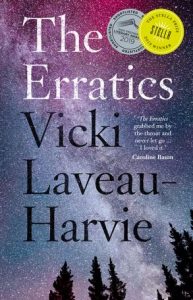
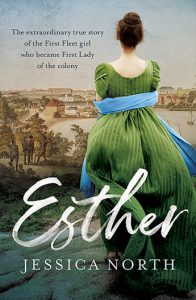
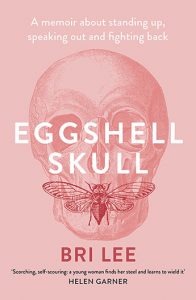
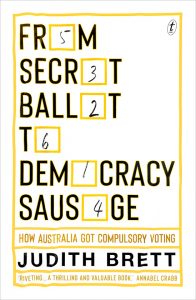
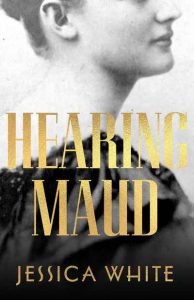
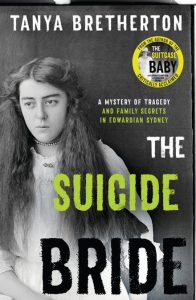
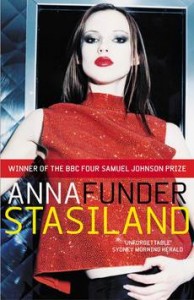
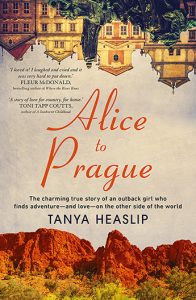
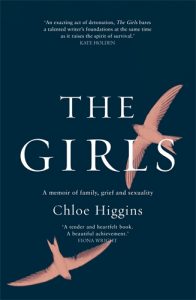
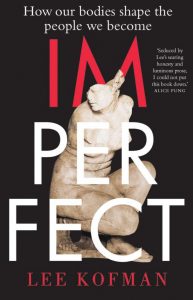
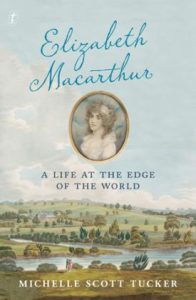





I always enjoy this round-up as you know Janine, though I only read a smattering of history/memoir/biography each year. As I noted on your review, I’d be interested to read Annear’s book.
I thought the book by Michelle Scott Tucker on Elizabeth Macarthur was excellent reading. It reminded of just how much our colonial history has been written from the male perspective. It’s clear much of the credit for the Macarthur’s success as a family is due to her endeavours.
Great wrap up Janine and congrats to all of the reviewers. It’s great to see an increase in reviews this year 🙂